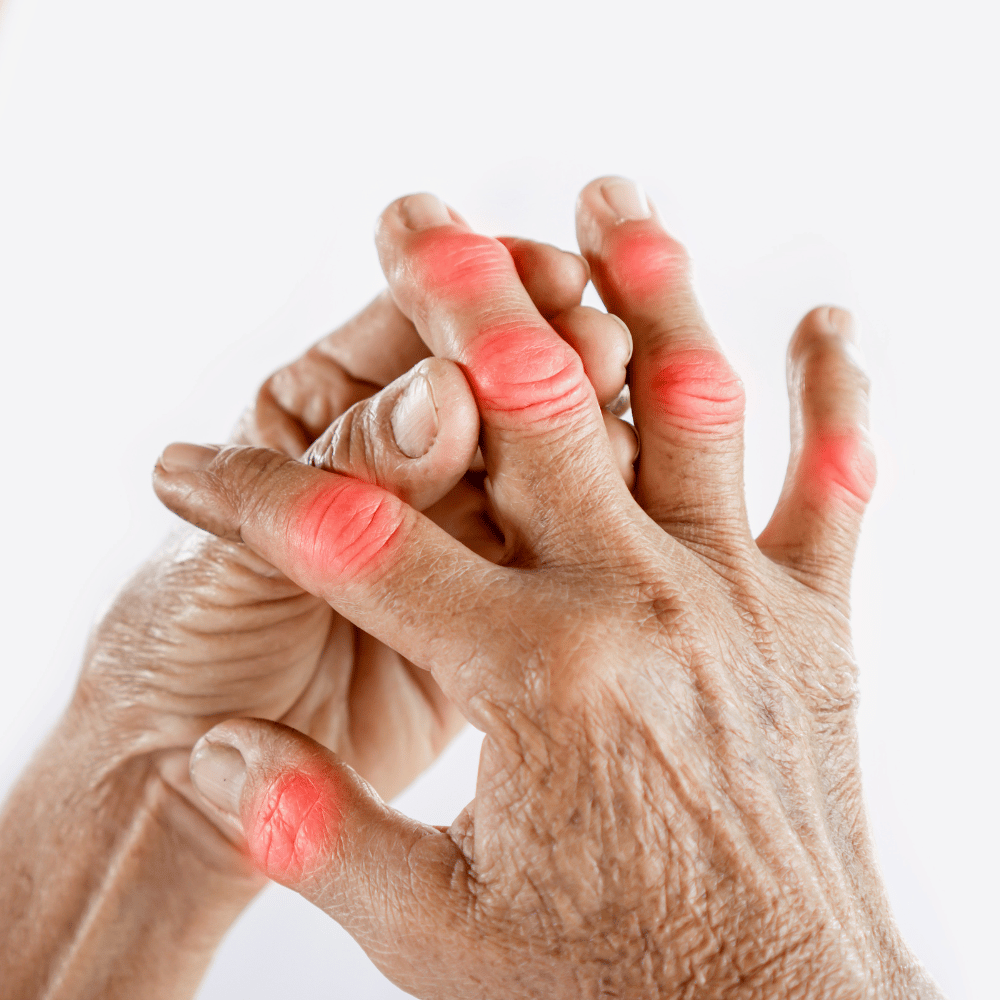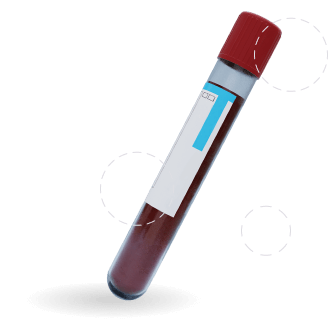
Medical Weight Loss Explained
A lot is said about medical weight loss but we are here to debunk the myths for you.
Blood Tests > Rheumatology Profile Testing

Find Out More


A rheumatology profile blood test is a common test that screens for various rheumatoid and connective tissue disorders.
These include rheumatoid arthritis, scleroderma, lupus (lupus erythematosus), polyarteritis nodosa (PAN), and dermatomyositis.

Rheumatic diseases, or rheumatism, occur due to inflammation and swelling in the joints and muscles, causing pain as the main symptom. Some rheumatic conditions, like osteoarthritis, result from wear and tear on the joints and cartilage.
Other rheumatic conditions develop when the immune system becomes overly active and attacks the joint linings. This also leads to pain and swelling and can cause conditions like rheumatoid arthritis.
While the exact causes of many rheumatic diseases are still not fully understood, they are believed to be the result of a combination of genetic, environmental, and lifestyle factors.
Some common factors that may contribute to the development of rheumatic diseases include the wear and tear or stress on joints, ageing, genetics and family history of rheumatic diseases, environmental triggers (exposure to pollutants or chemicals), autoimmune disorders, infection, and certain lifestyle choices like smoking (tobacco may exacerbate inflammation).


Rheumatology conditions present with a wide range of symptoms, such as joint pain (often the primary symptom), joint swelling, joint stiffness or instability, muscle weakness, fatigue, and difficulty performing ordinary activities like sitting, bending down, and getting dressed.
Other symptoms include joints that may feel warm to the touch and appear red or inflamed, as well as rashes or nodules, and systemic symptoms such as fever, weight loss, or malaise.
Rheumatic diseases encompass a diverse group of conditions characterised by inflammation and dysfunction in joints, muscles, and connective tissues, but the most common rheumatic diseases are:

Use our online booking engine or book your test by giving us a call.
On the online booking engine select the “appointment type” you need.
You will be seen by one of our friendly phlebotomists or trained clinicians.

It is important that you arrive for your rheumatic profile screening adequately hydrated. Drinking plenty of fluids before your appointment can make the blood-drawing procedure more comfortable, as being well-hydrated helps ensure that your veins are plump and accessible for the blood draw.

Your rheumatic profile screening is a straightforward blood test where a needle is inserted into a vein in your arm to draw a small amount of blood. While undergoing this test, you may experience a very slight discomfort when the needle is inserted. However, this blood test will be over in a matter of minutes and most patients experienced minimal discomfort.

If you take this test on the recommendation of one of our doctors during a GP consultation, they will call you to discuss the results and suggest the further management where necessary. Otherwise, we will email you the results and you can either take them to your own doctor for interpretation or you can book a consultation with us.
No
Hidden Charges
Transparent fees. The price you see is the price you pay.
No GP consultation
needed
No GP appointment requirement for blood tests
Established
since 1998
Experienced doctors & a professional team.
Strictly
confidential
Your medical records are kept private at all times.
We offer a wide range of private blood tests in London. Same-day appointments are available 5 days a week.
We work with experienced consultants & healthcare professionals who have received positive feedback from our patients, and with whom we have established long-term relationships.
Latest Episode
Tune in to our podcast to explore the world of healthcare and learn from distinguished special guests. We cover everything from preventative measures to cutting-edge treatments so that you can stay informed and up-to-date on health-related things.

A lot is said about medical weight loss but we are here to debunk the myths for you.

Tourist in London and need a GP? Get fast, private care for illnesses, injuries, or lost medication. No registration needed.

With NHS appointments harder to access, many people are turning to private GPs for faster, more convenient care.
Subscribe for latest updates & news


From same-day private GP and blood test appointments to visa medicals, a sexual and reproductive health clinic, and preventative health screenings, we are here to help.
Contact Us
Accepted Insurance Companies






Please note that Walk-in Clinic is a private medical centre & not an NHS service. Harley Walk-in Clinic Ltd company registration no. 07472804